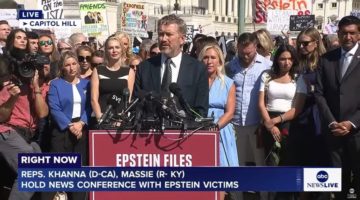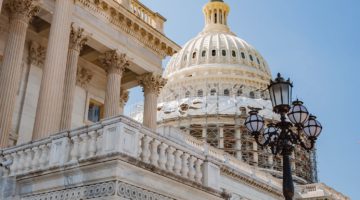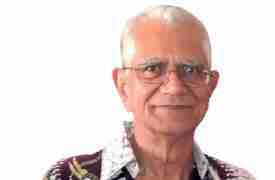The covid-19 pandemic could ease before the Nov. 3 presidential election but could still affect voter turnout. That uncertainty has led to calls for contingency plans for nation-wide mail balloting. But such calls have come up against an enduring voter-suppression campaign by the Republican Party.
According to the Brennan Center at New York University, “over the last 20 years, states have put barriers in front of the ballot box – imposing strict voter ID laws, cutting voting times, restricting registration and purging voter rolls,” The Guardian reported.
Much voter-suppression has resulted from the U.S. Supreme Court’s invalidating a key section of the Voting Rights Act of 1965. The 2013 ruling nullified a 48year requirement for federal oversight of proposed election law changes by states with a history of voting discrimination, especially against African Americans: Alabama, Alaska, Arizona, Georgia, Louisiana, Mississippi, South Carolina, Texas and Virginia.
Texas soon required voter IDs, which 600,000 Texans did not have, and closed 760 polling stations. Virginia limited voter-registration. In Georgia, 10 percent of counties were left with one polling place each.
As to purging of voter rolls, the Brennan Center said 17 million names were dropped, nationally, since 2016. In Georgia, Federal Judge Steve C. Jones approved removing more than 300,000 names, making for a total of 1.4 million between 2012 and 2018, the Associated Press reported. In Wisconsin, Circuit Judge Paul Malloy cleared the way for purging more than 200,000 names.
And several states have been gerrymandering electoral boundaries to favor the Republican Party, with a wink and a nod from the Supreme Court which refused to rule on its constitutionality.
At another level, disenfranchisement has kept 4.7 million ex-felons from voting, including 1.4 million Floridians -one of five being African American. Floridians voted almost 65 percent in 2018 for a referendum restoring their civil rights but the Republicans running state have tied up the issue in the courts.
Wisconsin voters had to cast ballots in their primary election on April 7, again with the help of the Supreme Court which backed a Republican challenge to Democratic Governor Tony Evers’ order to delay the election in a state. By then, the state already had 2,500 cases of infections and 92 deaths. At least 23 voters and poll workers contracted the virus. President Donald Trump, who voted from Florida although registered in New York, claims that absentee balloting would mean “you’d never have a Republican elected in this country again.” He tweeted, “Republicans should fight very hard when it comes to state wide mailvoting. Democrats are clamoring for it. Tremendous potential for voter fraud and for whatever reason, doesn’t work out well for Republicans.”
However, data gathered from elections from 1996 to 2018 by Stanford University political scientists and reported by The Washington Post showed that mail voting has “a truly negligible effect” on turnout rates for either party. Surveys did show that increased voting will indeed favor Democrats, citing a 2014 Pew Research Center study; 51 percent of those not registered to vote or not planning to vote that year favored Democrats.
None of this is new or a secret. Forty years ago, Paul Weyrich, who cofounded the super-conservative Heritage Foundation, said, “I don’t want everybody to vote. As a matter of fact, our leverage in the elections quite candidly goes up as the voting populace goes down.” Justin Clark, a senior Trump re-election campaign operative, was more blunt: “Traditionally, it’s always been Republicans suppressing votes in places,” the AP reported, based on an audio recording from a private event.
The coronavirus therefore seems to be the answer to the vote-suppressors’ prayers. The more people staying at home to minimize its spread, the lower the likely turnout. But an NBC-Wall Street Journal poll found 67 percent of Americans favor mail voting, The Hill reported. Online voting, on the other hand, is subject to hacking. Florida is one of 34 states which allow mail balloting for any reason and Broward, Miami-Dade and Palm Beach Counties will send mail voting registration forms to every registered voter for the August primary and November general elections, Huffington Post reported.
In another twist, however, Trump is now threatening to block funding for the U.S. Postal Service, which critics see as a ploy to hobble its ability to deliver mail ballots.
In his first term, Trump has created an alternative reality in which he sees himself as having absolute power and has tried to perform his duties as if he were. He has tried to make the nation believe that is the new normal and has evidently convinced at least his supporters that they can “cover the sky with the palms of their hands,” to paraphrase a Korean proverb. Voters may still want to re-elect a president who mused on national television about the possibility of Americans injecting themselves with disinfectant to fight the virus. But the electoral decision cannot be fairly made if the right to cast a ballot continues to be circumscribed by partisan politics.
Note: Last week’s column on Guyana’s elections failed to mention that much of the information used came from several Guyana media outlets, including the Guyana Chronicle, Kaieteur News, Stabroek News and Demerara Waves.










No Comment